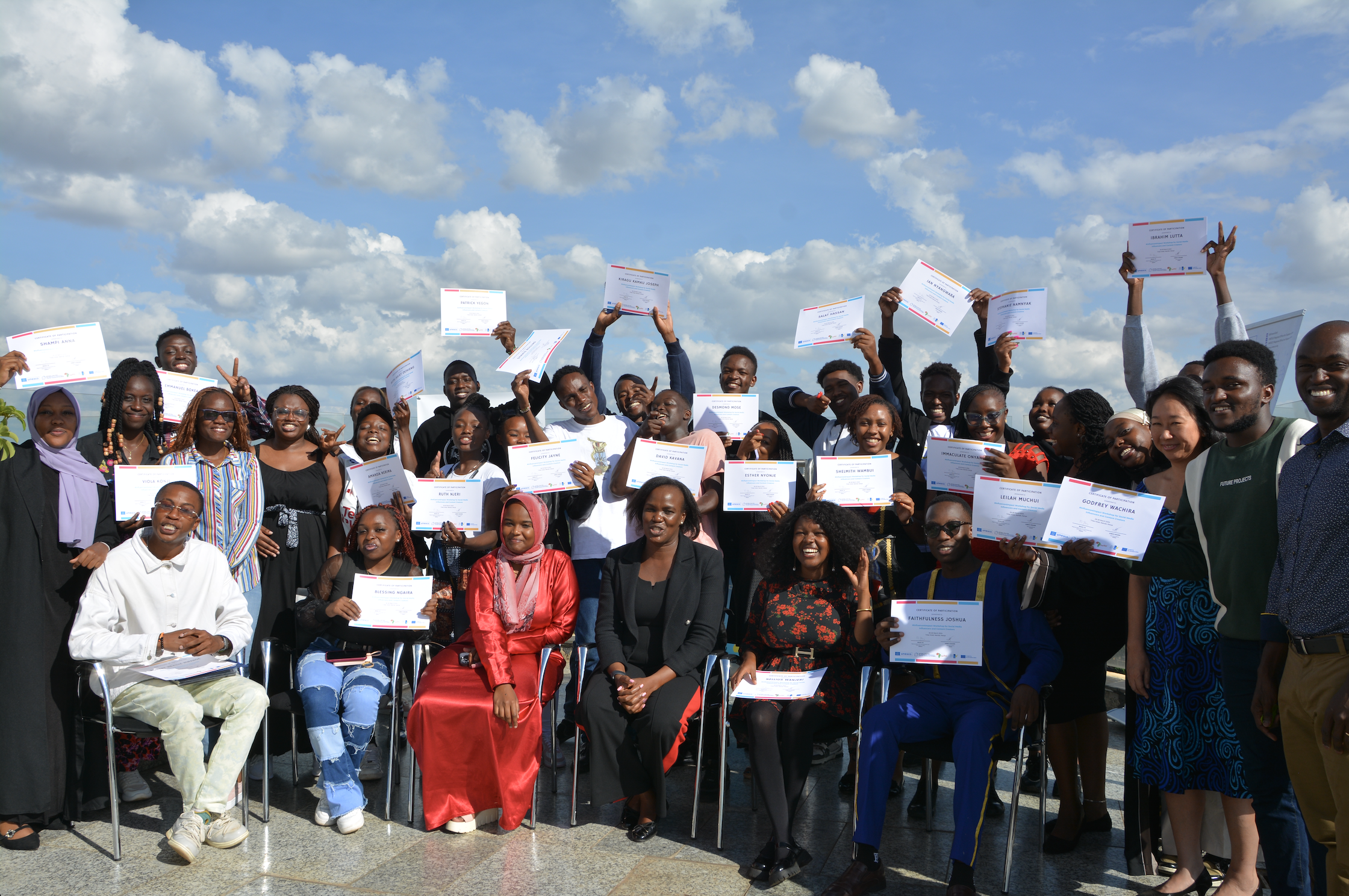This article was originally published by the UNESCO Regional Office for Eastern Africa.

Salat Hassan leads a community of 32.4K adventure-lovers online on his TikTok account, @epicadventuresandsafaris. The reels are every thrill-seeker’s dream: a man roars down a dirt road on an ATV, helmeted adventurers take on a high-element obstacle course amidst a lush forest, young people dance in a safari mini-van, ecstatic for their next adventure outside Nairobi. It is, as Salat tells us, a “community of people who love the spirit of adventure and travelling”, and one that he has begun building since 2020.
“I enjoy seeing people in my content smiling in safaris,” he explains, when asked about what he loves about his social media journey. In Kenya, where more than 10.55 million users (19.3% of the population) are using digital platforms to represent, express and inform themselves, social media and content creation has helped Salat to reach more people and grow his open tour and travel business. He aims to continue using his platform to “push the spirit of adventure” to more people and grow this community of epic adventurers together with his brothers and friends.

Content creators and social media influencers like Salat are changing the information landscape in Kenya. As they expand their reach to larger audiences and build online communities, they play an increasingly important role in shaping public opinion, driving conversation, and influencing behaviour. Moreover, as Kenya continues to drive its ambitious digital transformation plans to position the country as a leading digital economy hub and “Silicon Savannah” in East Africa, expanding internet connectivity and a diversifying digital platform landscape will continue to grow the population of digitally enabled content creators and consumers.
Ruth Njeri, a network engineer and passionate advocate for women in tech, attests to these drastic changes that Kenya’s social media landscape has undergone in the last decade. “The first social media app I installed on my very first smartphone was Facebook,” she recalls, “It was the most popular platform in Kenya then. But as I deepened by understanding of Information Technologies (IT) through my studies, I understood the immense potential for social media to not only connect users, but also support their professional and financial growth.”
LinkedIn, she highlights, provided her with a platform to showcase her skills and experiences to a broader audience, expanding her access to job offers, gigs, and valuable professional connections. Today, Ruth primarily uses her social media platforms to share her everyday work at Tanda Community Network, a community-centered connectivity organisation founded and based in Kibera, Nairobi’s largest informal settlement.
She shares pictures that give insight to the tough and “behind-the-scenes” work of connecting Kibera’s community schools, businesses, hospitals, and community media to robust internet infrastructure. Mostly, visitors to her page will find Ruth standing on iron-sheet rooftops or scaling tall ladders to reach telephone-wire beams, tweaking with red-blue wires and satellite dishes in her green safety coveralls. She hopes these candid vignettes inspire more young women to take on meaningful careers in tech, and aims to foster a supportive and collaborative online community with like-minded professionals.
But the Kenyan population’s growing online footprint is not all positive. While it has enabled more people than ever before to access, create and disseminate information, advancements in digital technologies including the recent advent of generative AI, have also led to the proliferation of harmful content across digital platforms. This phenomenon is increasingly blurring the distinction between facts and falsehoods, threatening societal cohesion, security, and wellbeing.
As digital natives, social media influencers and content creators are no stranger to online hate and mis/disinformation. For Denis Rollins, a community mobilizer who works at the frontlines of human rights advocacy, he understands how information and hate speech can be weaponized to fuel distrust, silence voices and undermine the credibility human rights defenders. Denis recalls an incident when he posted a reel of a protestors getting tear-gassed at a peaceful demonstration in Nairobi to call attention of human rights concerns on the ground. While much support flowed in, several commenters also criticized the reel for being inflammatory and “anti-government”, leading to the post being taken down.
“Despite criticism, we still have to come out strong and tell people what’s happening on the ground,” reflects Rollins (whose catchy moniker is inspired by American wrestler Seth Rollins). He remains committed to using his platform—now 2000 followers strong on Instagram—to educate and reach young Kenyans and communities about social justice and human rights. Social media influencers and content creators carry an important responsibility to present truth and build peaceful and constructive engagement with their followers, even as they navigate the risks and impacts of online harmful content themselves.
The experiences of Salat, Ruth and Denis give voice to the impetus behind the first-ever ‘Influence 4 Impact” workshop, organized by UNESCO in partnership with the Africa Center for People, Institutions and Society (ACEPIS), which aims to bolster the resilience of social media influencers and content creators against online harmful content in Kenya. 25 participants from diverse backgrounds attended the 3-day workshop, which was held at Trademark Hotel in Nairobi from 26-28 March, 2024. The workshop is a response to an urgent need to upskill a new generation of social media influencers and content creators on digital and media and information literacy (MIL) skills.
Sessions held by trainers and experts from the National Coalition on Freedom of Expression and Content Moderation in Kenya (FECoMo Kenya) covered topics including existing legal and institutional frameworks on harmful content in Kenya, strategies for addressing and responding to harmful content, as well as fundamental human and digital rights, among others.
Participants also worked in groups in response to a “Content Creator Challenge” to film, edit and present reels about important media and information literacy (MIL) skills. “Verify before you amplify!” the reels caution, providing practical tips on fact-checking tools, reporting mechanisms and best practices that followers can take to protect themselves from or respond to hate speech and mis/disinformation online.
At the close of the workshop, participants developed an action plan with detailed strategies and commitments on how social media influencers and content creators will contribute to tackling online harmful content in Kenya. The seven-point resolution (link) recognized their crucial role as creators, consumers, and conveyers of information, as well as their responsibility towards raising awareness on the importance of MIL and contributing to a fact-based information ecosystem in the country.
For millions of young Kenyans across the country, social media and digital platforms represent more than just tools for casual entertainment. This growing online world and digital economy is touted as the solution to absorbing Kenya’s overwhelmingly youthful workforce (or ‘youth bulge’), many of whom are going online in search of employment opportunities and access to gig work. “It changed my livelihood when there were no jobs out there,” shares Salat, who relies on his content creation to earn a living. As more and more Kenyans come online in search of knowledge, community, and employment, social media can increasingly enable the connection, collaboration and empowerment that will transform communities—including those most at risk of being left behind—if used responsibly and ethically.
Ruth acknowledges that the creation of this safe, inclusive and empowering digital space rests heavily on content creators and influencers. “Influencers have the power to amplify messages, advocate for causes and drive social change,” she reflects in closing, “but this influence comes with responsibility. We must wield the positive potential of platforms ethically, responsibly, and transparently, so that we can create positive change and build inclusive communities.”
Since the workshop, Ruth has also partnered with her colleague and co-participant Juliet Ochieng to conduct a training workshop for their community in Kibera, empowering more community content creators to build digital spaces of peace and trust, and using their influence for impact. Read the Resolution by Kenya’s Social Media Influencers and Content Creators here (insert link)
UNESCO’s Social Media 4 Peace Project
This initiative is implemented under the UNESCO EU-funded “Social Media 4 Peace” project, which seeks to strengthen the resilience of societies to potentially harmful content spread online, in particular hate speech inciting violence while protecting freedom of expression and enhancing the promotion of peace through digital technologies, notably social media. The project is also being implemented in Bosnia and Herzegovina, Indonesia, and Colombia.
